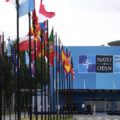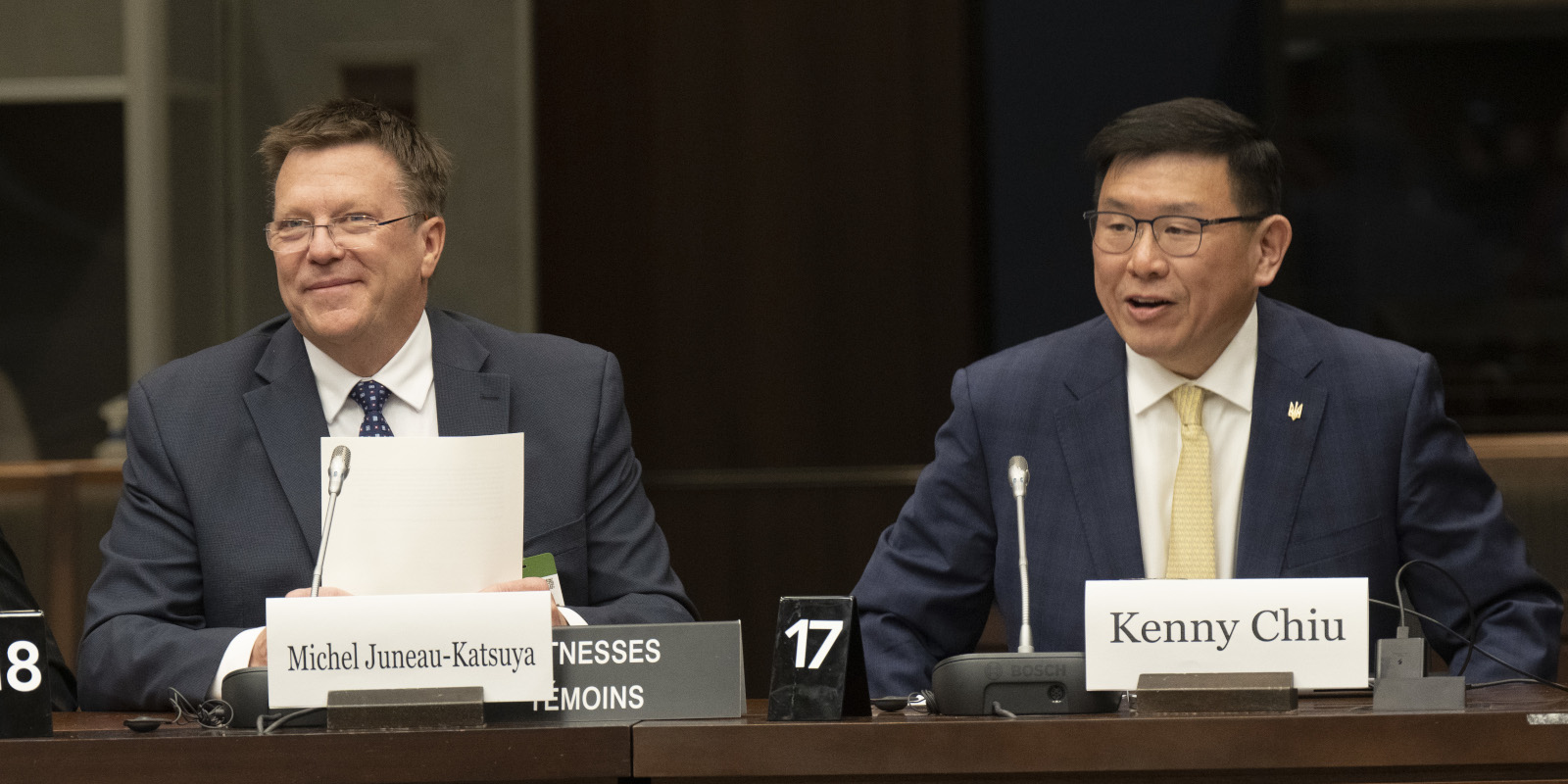A former Conservative MP who says meddling by the Chinese government cost him his seat in the 2021 election claimed this week that his story should have been a warning to the government to get its act together on foreign interference.
“It should have been a pan-partisan issue to protect the country and its people. It’s arguably the top job of any sovereign government,” said Kenny Chiu, the former Conservative MP for Steveston—Richmond East, who was appearing before the Standing Committee on Procedure and House Affairs on Tuesday.
“Yet, we’re seeing an inexplicable [action-free] policy exercised by our federal government, vis à vis interference from the most resourceful and ambitious of all foreign states… the Chinese Communist Party (CCP) regime,” said Chiu.
Chiu lost his re-election bid in the 2021 federal election, a result that he has stated multiple times was due to meddling from CCP, or pro-CCP, actors. He says a campaign of disinformation was started among users of social media apps like WeChat in Richmond after Chiu proposed a public registry to track the political influence of foreign entities.
When asked by Conservative MP Michael Cooper about the specifics of the disinformation spread against him during the 2021 election, Chiu said he and then-Conservative Party leader Erin O’Toole were subjected to the same false accusations.
“As if he’s a white supremacist, that he’s anti-Chinese, anti-Asian, and, as if it’s not ridiculous enough, they level similar attacks on me personally,” said Chiu, who was born in Hong Kong. “The fact that I’m ethnic Chinese, I speak fluent Cantonese and Mandarin, I read and write the language…and yet it doesn’t prevent them from labelling that I’m a traitor, that I’m a sellout for what I have proposed.”
The committee’s ongoing investigation into foreign interference dovetailed this week with the expulsion of Chinese diplomat Zhao Wei, following a Globe and Mail report that the family of Conservative MP Michael Chong had been subjected to an intimidation campaign orchestrated by Zhao.
Chiu said that while he had a meeting with a CSIS contact during his re-election campaign regarding foreign interference in his riding, he had no further contact with the same national security officials after the election.
Liberal MP Ryan Turnbull was skeptical of Chiu’s claim that the foreign meddling was the key factor in swinging the vote in Steveston—Richmond East.
“I guess what I want to establish here is did you lose by nine percent of the vote or not?” asked Turnbull, which Chiu confirmed before Turnbull continued. “And how many votes do you think were impacted by foreign interference?”
“If I can have a camera installed on each and every move and look at how people voted then I will be able to, for certain, answer your question,” replied Chiu.
Turnbull then asked Chiu if he admitted that he did not know how many votes in his riding were impacted by foreign interference.
“There will be no way…to tell that foreign interference is not a factor of an election result in my riding,” Chiu responded.
Turnbull mentioned a survey among Chinese-Canadians during the 2021 election that indicated there had been no change in voter intention between the first two weeks of the campaign and its final two weeks. Chiu replied that he had not read the survey, but wanted to know what language it was conducted in as the Chinese-Canadian community is not homogenous and includes Cantonese and Mandarin speakers, as well as people whose families are from Taiwan, Hong Kong, and Mainland China.
Foreign interference is a problem that governments need to take seriously, said David Salvo, a senior fellow and managing director of the Alliance for Securing Democracy at the German Marshall Fund. Salvo’s organization was formed initially to research ways to combat foreign interference from Russia during U.S. elections but expanded its focus to include interference from China and other countries like Iran.
“In Canada, you do not need me to tell you that foreign interference in democracy remains a serious challenge,” said Salvo. “The rise in Chinese state-sponsored interference in Canadian democracy through targeting specific ridings and candidates and elections, maligned financial coercion and subversion of civil society including the Chinese-Canadian diaspora has been well documented.”

Jenni Byrne, the former deputy chief of staff to prime minister Stephen Harper, closed the week of hearings with a feisty appearance at committee on Thursday.
Byrne sparred with Turnbull and had a spirited exchange with NDP MP Matthew Green, with Green arguing that it’s “very suspicious” that Byrne was never briefed on foreign interference while working in Stephen Harper’s prime minister’s office.
The partisan dynamic drove the committee down another predictable road, with Liberal and NDP MPs grilling Byrne on foreign interference and Byrne calling for a public inquiry to investigate Chinese interference in recent Canadian elections.
“I don’t see how, at this point, there can’t be a public inquiry,” said Byrne.
“It often seems like this government and their friends are angrier at the whistleblowers and the journalists who are reporting on foreign interference than they are about the serious threat to our democracy that this foreign interference poses,” said Byrne.
Recommended for You

‘They’re voting with their eyeballs’: Sean Speer on the revealed preferences of Canadian news consumers

Kirk LaPointe: B.C.’s ferry fiasco is a perfectly Canadian controversy

‘I want to make Canada a freer country’: Conservative MP Andrew Lawton talks being a newbie in Parliament, patriotism, and Pierre Poilievre’s strategy

Sean Speer: Don Cherry deserves the Order of Canada




